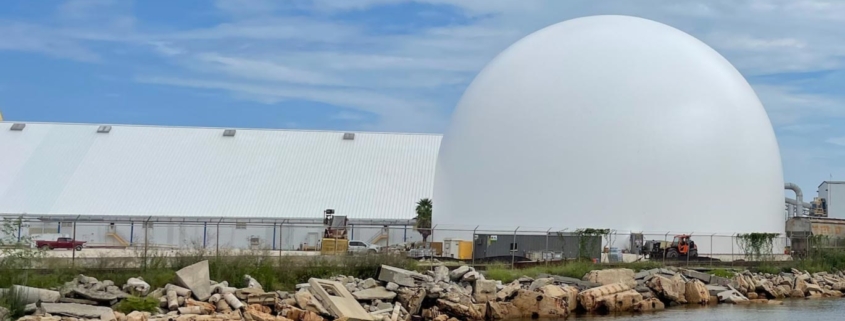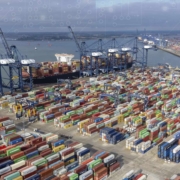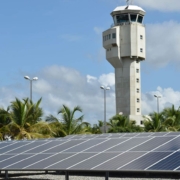Biomass Dome in Port Panama City: A Benchmark in Sustainability and Export
The commitment to sustainability and export finds a new benchmark in Port Panama City, thanks to the inauguration of the biomass dome. This $20 million investment, set to open on November 7th, not only strengthens the export chain but also reflects sustainable practices that benefit the planet and the local economy.
How Port Panama City and the biomass dome contribute to sustainability?
In the era of sustainable development, eco-friendly initiatives like this are crucial. For example, biomass, as a renewable source of energy, reduces dependence on fossil fuels. By storing and exporting wood pellets from this dome, Port Panama City contributes to a global market that seeks cleaner and renewable energy sources.
Alex King, director of Port Panama City, emphasized the project’s impact on employment and the environment. “Expanding our biomass capabilities not only creates jobs but also promotes environmentally friendly practices. We are adding employees committed to sustainable resource management,” he mentioned.
The local agroindustry, especially the prominent timber company in Jackson County, has a golden opportunity here. We are not only talking about more job opportunities for industrial workers and truckers but also a business model that promotes sustainable forest management. Production that, by ensuring reforestation, guarantees ecological balance and a constant source of raw materials.
Furthermore, the increase in pellet transit by rail demonstrates greener mobility. By choosing this mode of transportation, carbon emissions are reduced compared to road transport.
The new biomass dome in Port Panama City is an emblem of sustainability and progress. A project that, by combining economic development and respect for the environment, puts Port Panama City on the map of global sustainable trade.
Sustainable Energy and Its Role in Logistics, Economy, and Ports
At the forefront of industrial and commercial transformation, sustainable energy has become the central focus of modern logistics operations. It’s not just a whim; it’s a necessary response to climate change and the urgency to preserve resources for future generations.
Logistics companies, which have traditionally relied on non-renewable energy sources, are recognizing the importance of incorporating sustainable practices. By using clean energies like biomass, they significantly reduce their carbon footprint. This transition not only enables them to comply with stricter environmental regulations but also provides a competitive advantage in an increasingly environmentally conscious market.
Ports, as essential nodes in the global supply chain, have a particular responsibility in this shift. A sustainable port not only optimizes its operations to reduce emissions and waste but also favors companies that share this commitment. The biomass dome in Port Panama City is a clear example of how ports can lead in adopting clean technologies, promoting both economic growth and sustainability.
The global economy greatly benefits from these initiatives. Companies that embrace sustainable practices often experience improved reputation, increased customer loyalty, and, in many cases, long-term operational savings due to energy efficiency. Furthermore, sustainable management opens up new market opportunities, aligning companies with the United Nations Sustainable Development Goals (SDGs).
Sustainable energy and sustainable management are not just trends; they are imperatives in today’s world. In the intersection of logistics, economy, and port operations, they represent the path to a more promising and resilient future.
For more news about sustainability in logistics, visit our blog.
Source: Portal Portuario









